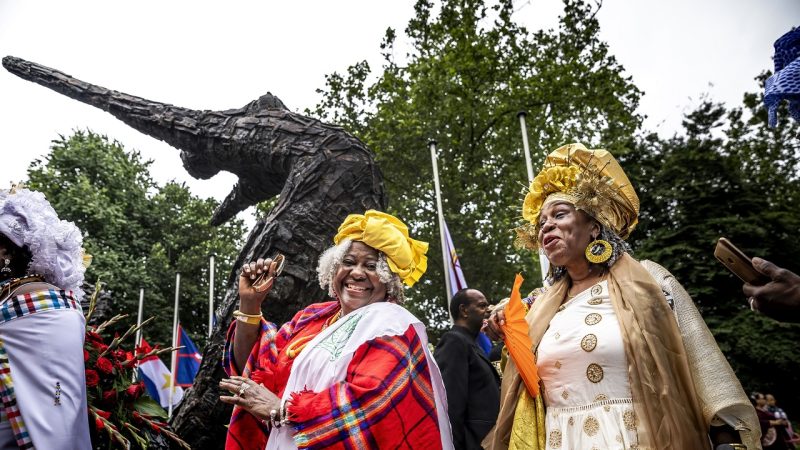Keti Koti, a term meaning “Breaking the Chains” in Dutch, is a significant celebration in the Caribbean, marking the emancipation of enslaved Africans in the Dutch colonies. Celebrated on July 1st each year, Freedom Celebration is more than just a historical event; it is a vibrant and empowering celebration of freedom, cultural heritage, and unity. This article explores ten compelling reasons why Freedom Celebration is a momentous occasion deserving of celebration, and how it continues to resonate deeply with people today.
The Historical Significance of Keti Koti
Keti Koti commemorates the abolition of slavery in the Dutch Caribbean colonies in 1863. The day symbolizes the end of over two centuries of brutal enslavement, representing a pivotal moment in history. The legacy of Keti Koti is deeply intertwined with the collective memory of the African diaspora, reminding us of the struggles and triumphs of those who fought for freedom. Understanding the historical context of Keti Koti helps us appreciate the profound impact of this day on present and future generations.
Keti Koti as a Celebration of Freedom
At its core, Keti Koti celebrates freedom. It represents the breaking of chains and the emergence of a new era where individuals could live free from oppression and bondage. This celebration is not just about remembering the past but also about embracing the freedom and opportunities that were won through sacrifice and resilience. v reminds us of the importance of freedom and the need to continue striving for justice and equality in our societies.
Cultural Heritage and Identity
Keti Koti is a powerful expression of cultural heritage and identity. It is a time for people of African descent to celebrate their history, culture, and achievements. The festival showcases traditional music, dance, and art, bringing communities together to honor their roots. Through vibrant parades and cultural performances, Emancipation Day highlights the rich tapestry of African heritage and its contributions to global culture.
Unity and Community Spirit
One of the most inspiring aspects of Keti Koti is its ability to foster unity and community spirit. The event brings together people from diverse backgrounds to celebrate a shared history and common values. This sense of unity is essential for building strong, inclusive communities. The celebration serves as a reminder that despite our differences, we are all connected through our shared experiences and collective struggles.
Educational Opportunities
The celebration of Emancipation Day provides valuable educational opportunities for people of all ages. Schools, museums, and cultural institutions often organize events and programs to educate the public about the significance of the day. These educational initiatives help to preserve the history of slavery and emancipation, ensuring that future generations understand the importance of Keti Koti and the lessons it teaches about freedom and human rights.
Commemoration and Reflection
The celebration includes moments of commemoration and reflection. Ceremonies and gatherings often feature speeches, prayers, and moments of silence to honor the memory of those who suffered and died during the era of slavery. This reflective aspect provides an opportunity for individuals and communities to acknowledge the past, learn from it, and commit to building a better future.
Inspiring Stories of Resilience
The event is a celebration of resilience and triumph over adversity. The stories of individuals who fought for their freedom, survived the hardships of slavery, and contributed to the abolition movement are both inspiring and motivational. These stories serve as powerful reminders of the strength and courage required to overcome oppression and create positive change in the world.
Culinary Traditions and Feasts
Food plays a central role in the celebrations, with traditional dishes and feasts being an integral part of the festivities. These culinary traditions reflect the diverse cultures and histories of the Caribbean and African communities. Sharing meals and enjoying traditional foods during the event not only connects people with their heritage but also fosters a sense of community and belonging.
Art and Music Celebrations
Art and music are central to the festivities, showcasing the rich cultural heritage of the Caribbean and African communities. Traditional music genres, such as calypso and soca, as well as dance forms like the moko jumbie, are performed during the celebrations. These artistic expressions celebrate the vibrancy and creativity of the culture while also serving as a form of resistance and empowerment.
Promoting Social Justice
Finally, the event is an important platform for promoting social justice and addressing contemporary issues related to racial equality and human rights. The celebration serves as a call to action for individuals and communities to work towards a more just and equitable society. By reflecting on the struggles of the past and advocating for positive change, the event continues to inspire efforts towards social justice and equality.
Conclusion
Keti Koti is more than just a historical commemoration; it is a vibrant celebration of freedom, cultural heritage, and unity. From its historical significance and cultural expressions to its role in promoting social justice, Emancipation Day offers numerous inspiring reasons to celebrate. By embracing the lessons and values of Emancipation Day, we honor the past, celebrate the present, and work towards a future where freedom and equality are cherished and upheld.
FAQs
Q1. What is the significance of Keti Koti?
Keti Koti commemorates the abolition of slavery in the Dutch Caribbean colonies in 1863. It symbolizes the end of centuries of enslavement and celebrates the freedom and rights gained through this pivotal historical moment.
Q2. How are these celebrations typically observed?
These celebrations are observed with various activities including parades, cultural performances, traditional music and dance, and communal feasts. The events also feature moments of reflection and commemoration to honor those who suffered during the era of slavery.
Q3. Why is this event important for the African diaspora?
This event is crucial for the African diaspora as it represents a significant moment in their history and cultural identity. It provides an opportunity to celebrate heritage, remember the struggles of ancestors, and recognize their contributions to society.
Q4. What role does food play in the festivities?
Food is a central element of the festivities, with traditional dishes being prepared and enjoyed during the celebrations. These culinary traditions highlight the rich cultural heritage of the Caribbean and African communities and foster a sense of community and belonging.
Q5. How can people get involved in the celebrations?
People can get involved by attending local events, participating in cultural performances, and engaging with community activities. Many cities and towns with Caribbean or African communities host celebrations that are open to the public, providing opportunities to learn about and participate in the festivities.
Also read: Travel Insurance for Thailand Trip: 10 Things You Need to Know Before You Go








